For people visiting Bulgaria’s second biggest city, Plovdiv for the first time, seeing its winding streets, colourful buildings and welcoming people is usually like love at first sight. People in Plovdiv will readily direct you to all the must-sees, and will tell you all about the history of the city. Many prominent figures in different spheres come from Plovdiv – opera singer Boris Christoff, BNR music editor Toma Sprostranov, actress Tzvetana Maneva, footballer Hristo Stoichkov, gymnast Yordan Yovchev.
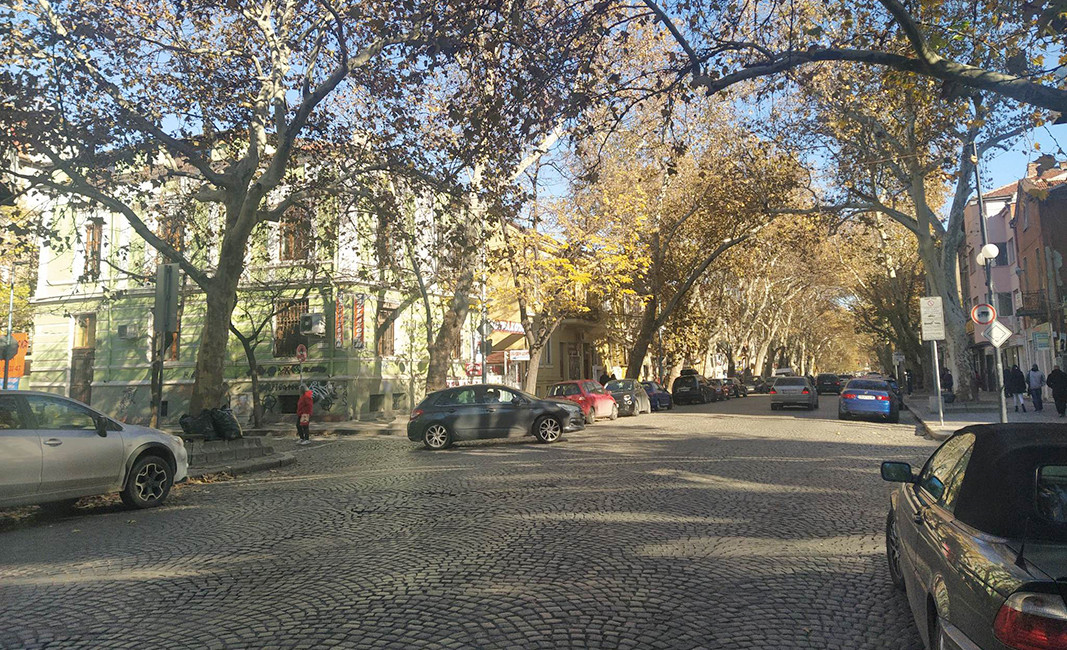
As soon as you get off the train, you will face what was once called Station Street, now Ivan Vazov Street which leads right into the heart of the city – Central Square. The street, lined with massive sycamore trees since the turn of the 20th century, and named after the patriarch of Bulgarian literature Ivan Vazov, is a magnificent sight. It was here that Plovdiv’s emblematic 1920’s tobacco warehouse once rose, belonging to prominent entrepreneur and benefactor Dimitar Kudoglu. Now, their melancholy ruins remain.
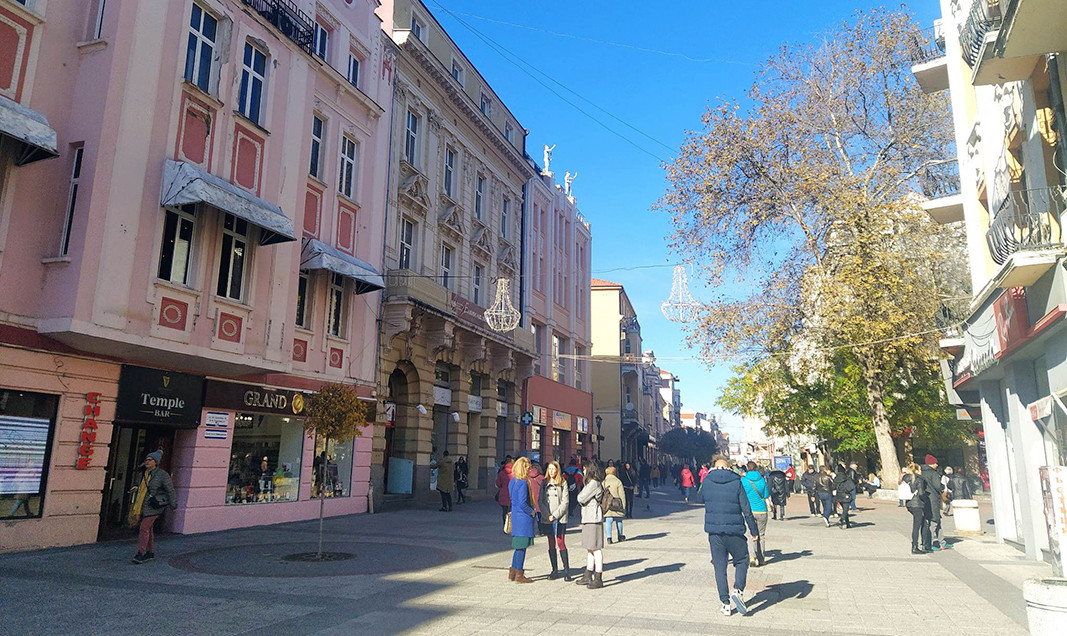
Central Square leads up to Main Street where people in Plovdiv love taking long walks. It is 1,750 m. long which makes it the longest pedestrian-only street in Europe. As a matter of fact, it is two streets – Prince Alexander I Battenberg and Rayko Daskalov street, connected by Jumayata Square. And around Main Street you can find all the diversity a city with a history going back 8,000 years has to offer.
If you take a left turn from Main Street, you will end up at the Tsar Simeon Garden with its water feature “The singing fountains”. The park, built after the country’s liberation in 1878, was designed by Swiss landscape architect Lucien Chevallaz.

As they take a walk in the pedestrian zone, tourists often stop to take their picture alongside the statue of Milyo by sculptor Danko Dankov.

Milyo was a real person – an eccentric, a bit slow but good-hearted, as one contemporary describes him. He loved to sit on Main Street and watch the people go by. He was very popular in the city, and has even been painted by some renowned artists like Zlatyu Boyadzhiev, Yoan Leviev, Hristo Stefanov.
A 6-7 minute walk up the staircase with the word Together on it that is next to the sculpture of Milyo will take you to one of the hills of Plovdiv. It is called Danov Hill, named after Hristo G. Danov, book publisher and mayor of the city.
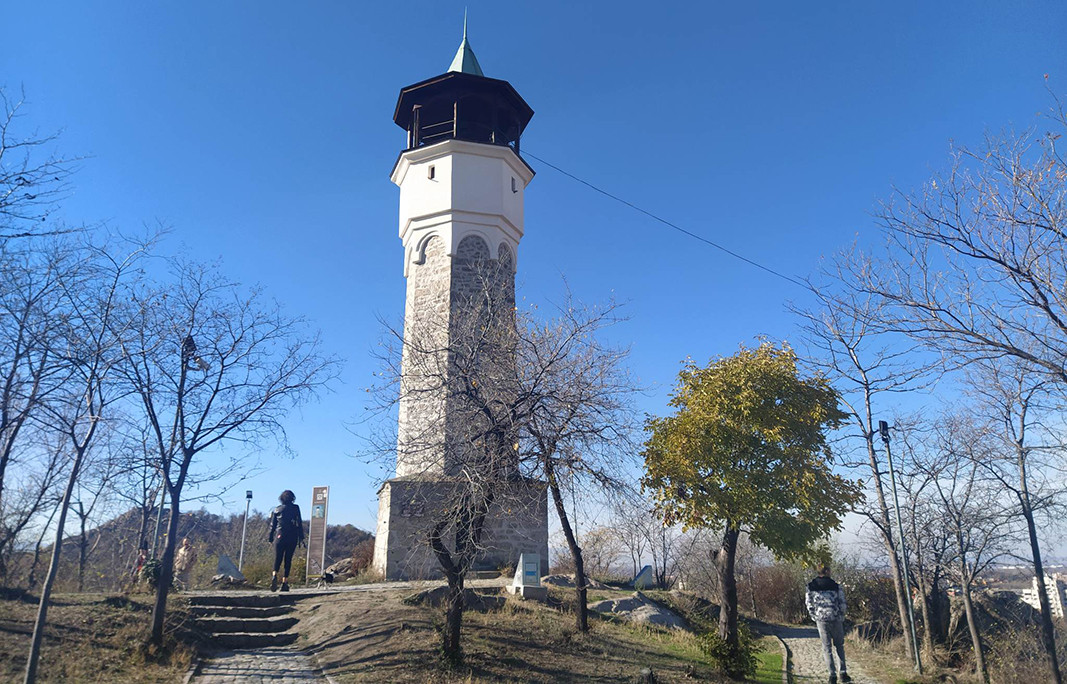
However, the hill is popular by its old Turkish name – Sahat Tepe, or Clock Hill, because perched on top of it is a clock tower, made mention of as early as 1611 by a Frenchman called Lefebvre. As it now rises, however, it was built in 1809. Its clock chimes on the hour, and the tower offers a magnificent view of the city.
If you are a jewellery lover, then from Jumayata Square, take a turn along Otets Paisyi Street with its multitude of gold boutiques. And if you are interested in architecture, then take Hristo G. Danov Street that starts from the opposite end of the square.

At No. 17 is the famed Nymph House, a splendid building built around the year 1920. Because of the bas-reliefs of female figures and flowers on the façade it goes by the name of Nymph House. Interestingly, inside one of its cellars there is a well. The house was designed by Emilia Sabeva, an Italian architect married to a Bulgarian. Regrettably, the building is in poor condition.

Taking a turn from main street, the winding streets of the Old City will take you to Nebet Tepe – the hill around which the city came into being during the 6th century BCE as a Thracian settlement called Evmolpia. Later, in the 4th century BCE, Philip II of Macedon integrated it into the empire, and named it Philippopolis. Nebet Tepe commands a spectacular view of the city below the “tepes” or hills, as Plovdiv is often dubbed.
But let us go back to Jumayata Square and take a journey back in time. There is an ancient stadium, a mosque dating to the year 1435, as well as magnificent buildings keeping alive Plovdiv’s aristocratic spirit from the turn of the 20th century, all in one place here.
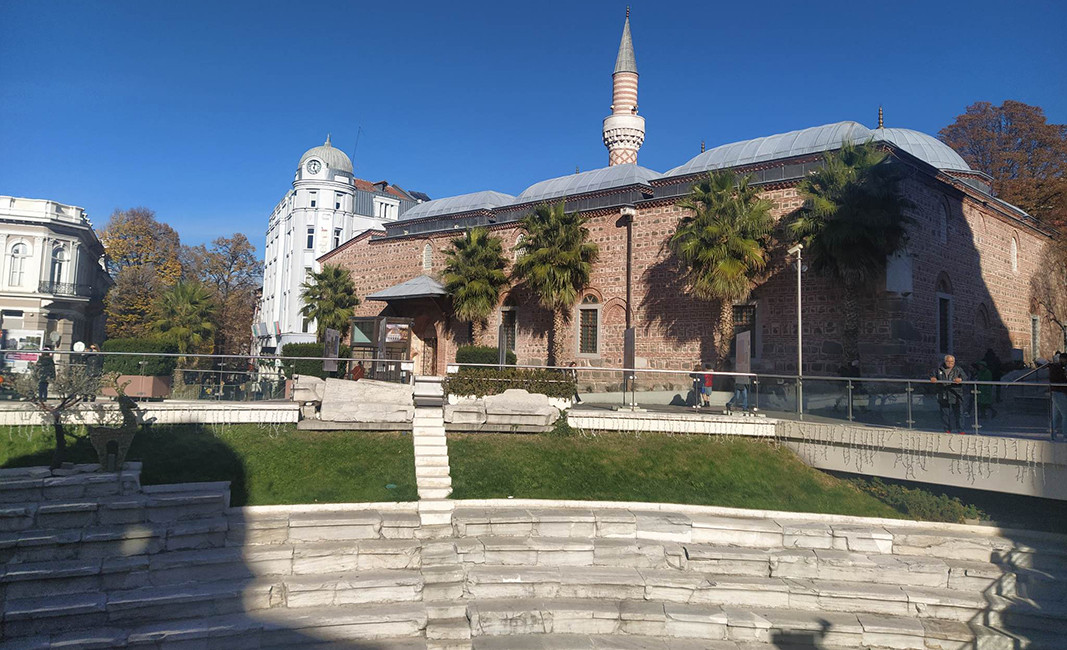
The reconstructed 2nd century ancient stadium (under the Norwegian Financial Mechanism) had a capacity of 30,000 viewers. And above the stadium towers the magnificent red-bricked Jumaya Mosque, erected by order of Sultan Murad II. Here, there is a tradition of drinking “tolerance coffee”, at the initiative of the mosque’s board of trustees. Once a year, the event brings together representatives of the different communities and religions in Plovdiv as a demonstration of their peaceful co-existence. On one of the corners here, there is a sundialр donated by a Russian officer in 1878.
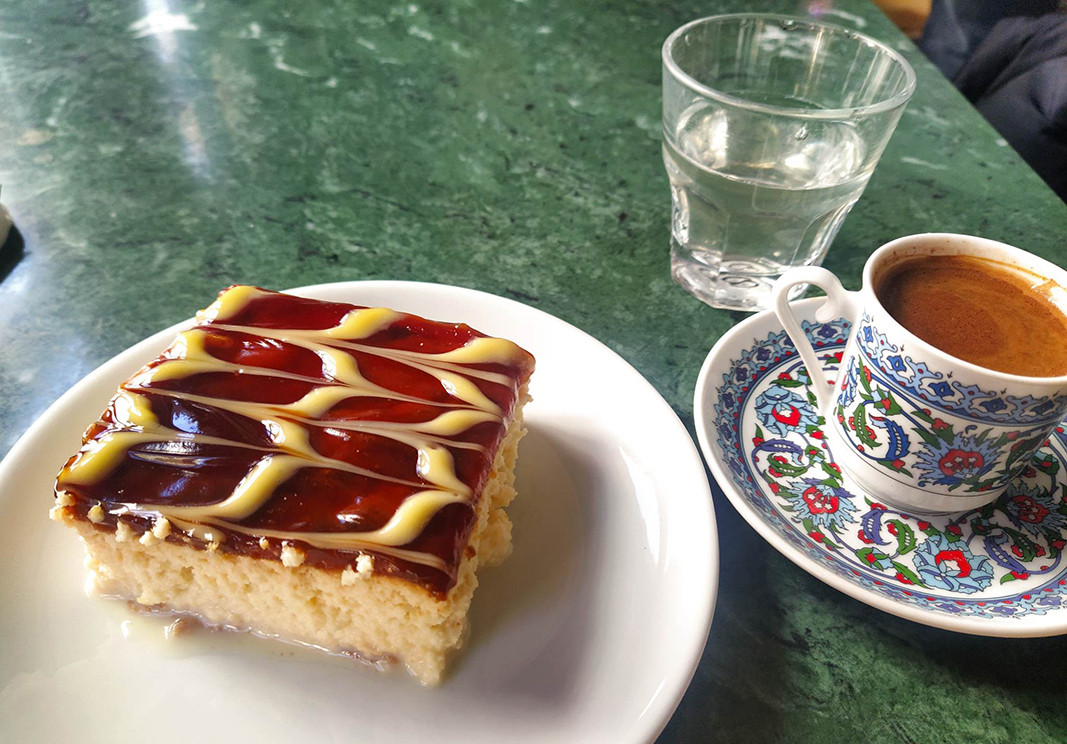
And on the opposite side is the Turkish coffee and sweet house with its abundance of baklava, kadaif, tulumba, trilece, and, of course, steaming Turkish coffee. Just the place for a gourmand to sit down and take in the atmosphere.
Photos: Miglena Ivanova
The municipalities of Dalgopol, Provadia and Dolni Chiflik will advertise on the Polish market under a project to support Black Sea municipalities. The project is called "Discover the Past, Experience the Present" . During the summer of 2023, Polish..
Bulgarian banitsa and Shopska salad have more than once occupied the top positions of world gastronomic rankings. But the Bulgarian national cuisine includes much more than these two dishes or the famous meatballs, kebab che ,..
Bulgaria's Black Sea coast is expecting a good tourist season this summer. But hoteliers in the country's resorts are worried about difficulties in finding qualified staff. This is what the mayor of Chernomorets, Rosen Despov, told BTA. According to him,..

+359 2 9336 661
